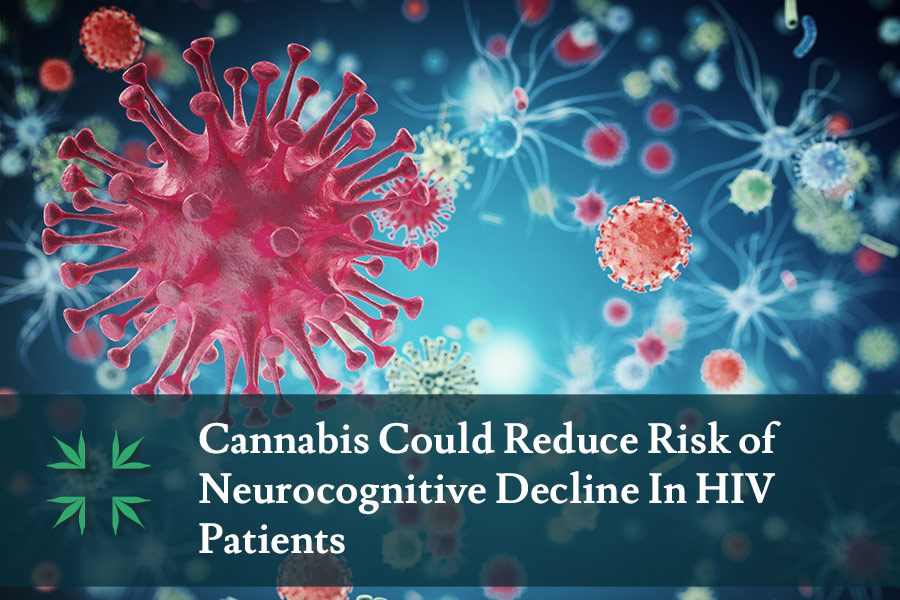People living with HIV who use marijuana may lower their risk of developing neurocognitive disorders compared to carriers of the virus who have never used cannabis, according to a new study.
Researchers from the University of California, San Diego, found evidence to suggest that cannabis decreases the inflammation and neurotoxicity of brain neurons. People with HIV are at higher risk of increased inflammation in the brain which damages the neurons and can lead to neurocognitive impairment (NCI) such as dementia and Alzheimer’s disease. This problem was especially acute for people with HIV before the widespread use of antiretroviral medicines, but NCI is still thought to affect between 25 to 50 percent of those carrying the virus.
“Clinically, neurocognitive impairment among people living with HIV is associated with impairments in everyday functioning (e.g., medication management) that can impact progression of HIV, subsequent transmissibility and even confer increased risk of early mortality,” the study, published in the Journal of Acquired Immune Deficiency Syndrome, reads.
“Thus, understanding factors that may increase risk of or resilience against neurocognitive impairment among people living with HIV is vital to maintaining optimal health in this population.”
As people get older, the risk of inflammation in the brain also increases. The combination of old age and HIV holds an even greater risk for NCI. The study, published in the Journal of Acquired Immune Deficiency Syndrome, therefore calls for more research into whether marijuana’s anti-inflammatory properties could even help safeguard the cognitive functions of the broader ageing population. Previous research has also suggested that cannabis use may improve cognitive function among seniors.
People living with HIV are three times more likely to use marijuana than the general population in the US, largely to manage symptoms such as nausea, depression, loss of appetite, and chronic pain. This new research suggests that marijuana use among people who are HIV-positive may also provide longer-term benefits.
To arrive at their conclusions, the researchers studied nearly 1,000 individuals between 1998 and 2016, two-thirds of whom were HIV-positive. The rest were healthy. The researchers excluded individuals with a background of non-HIV-related disorders affecting brain function. Almost 75 percent of participants with HIV were on antiretroviral medicines. All participants were interviewed about their substance use and mental well-being, before undergoing a neuromedical assessment. They then carried out a set of neurocognitive tests to assess verbal fluency, working memory, processing speed, delayed recall and motor skills.
Results showed that cannabis exposure, defined as both current and historical use, was associated with a 47 percent lower incidence of NCI. No such association was found in the healthy participants.
The study’s authors conclude that “cannabis exposure is linked to a lower odds of [neurocognitive impairment] in the context of HIV.”
“Our results are consistent with the idea that under some circumstances, cannabis might be neuroprotective,” the study reads. “Further investigations are needed to refine the effects of dose, timing and cannabis compound on this relationship, which could inform guidelines for cannabis use among populations vulnerable to cognitive decline.”

Leave A Comment